Digestive/GI
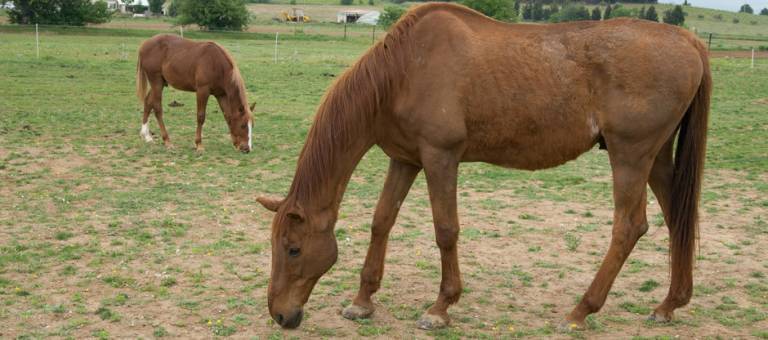
January 27, 2010
Colic Caused by Stomach Distention is a Life-Threatening Condition
Gross stomach distention can be caused by several factors. The most common are overconsumption of water or grain; parasite
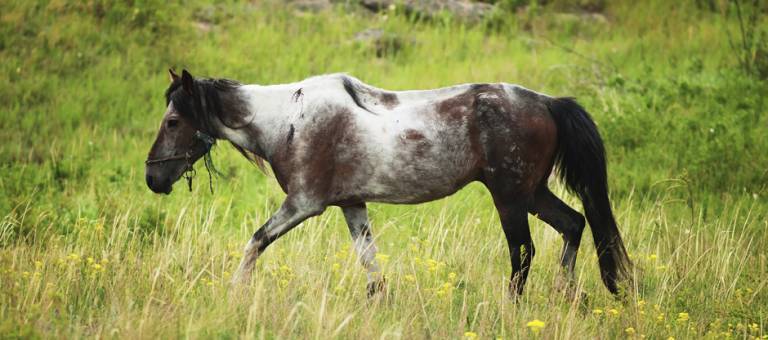
January 24, 2010
Feeding Starved or Malnourished Horses
The transition back to normal body weight is gradual. Slow refeeding minimizes the chances of adverse gastrointestinal effects and
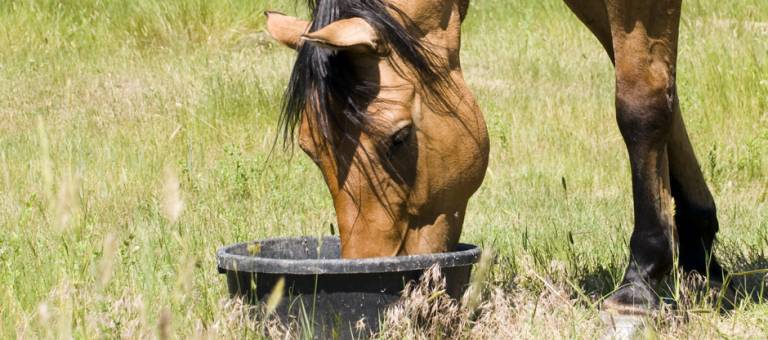
January 17, 2010
Choke: Age, Sex, and Severity Affect Outcome
Obstruction of the esophagus, commonly known as choke, is a life-threatening condition for horses and a panic-inducing event for
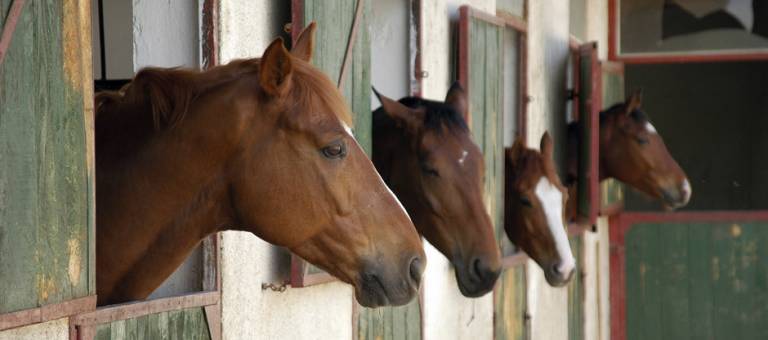
October 26, 2009
Feeding Horses During Natural Disasters
A horse thrives on routine, and nowhere is this more true than in feed management. Suppose, however, that unexpected
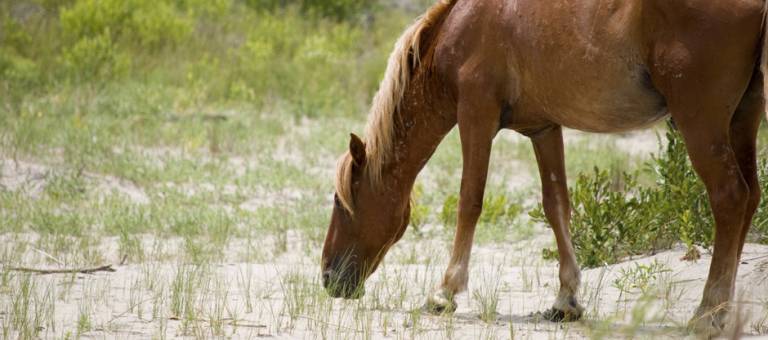
October 28, 2008
Psyllium for Prevention of Sand Colic in Horses
Horses grazing sparse vegetation on sandy soil tend to ingest varying amounts of sand. This sand may accumulate in
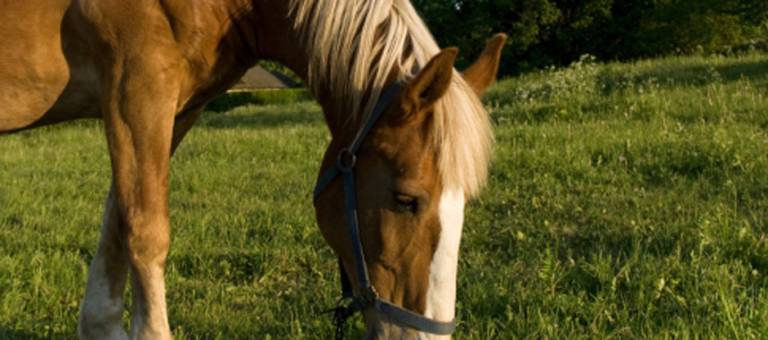
October 28, 2007
Subclinical Acidosis: Is Your Horse at Risk?
Certain situations trigger the pH of the hindgut to drop sharply. The two most common causes are the overconsumption
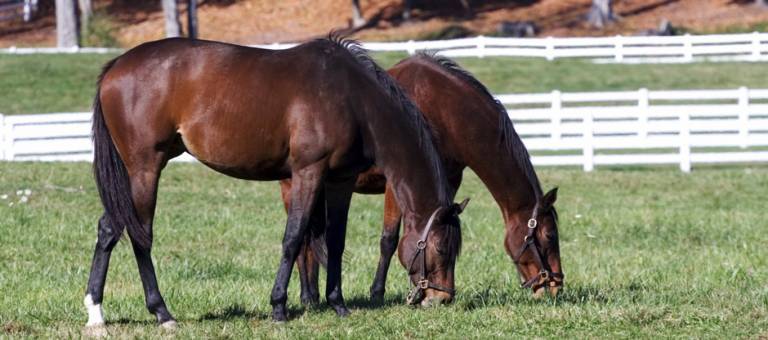
October 27, 2007
Lawn Clippings and Horses
Feeding lawn clippings will dramatically upset the balance of microbes in the hindgut, potentially leading to colic or laminitis,
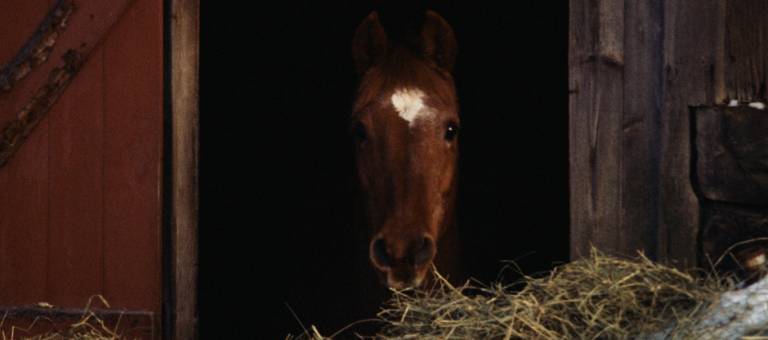
September 17, 2007
Forages the Foundation for Equine Gastrointestinal Health
Horses have evolved over millions of years as grazers, with specialized digestive tracts adapted to digest and utilize diets
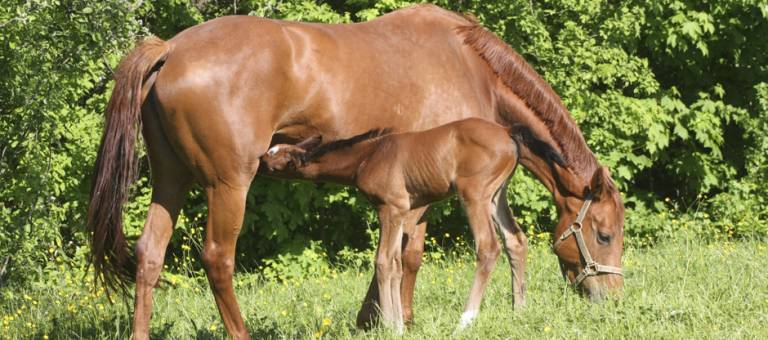
October 25, 2004
Foal Heat Diarrhea Studied
Twenty-four of 30 foals (80%) developed diarrhea at seven to ten days of age.
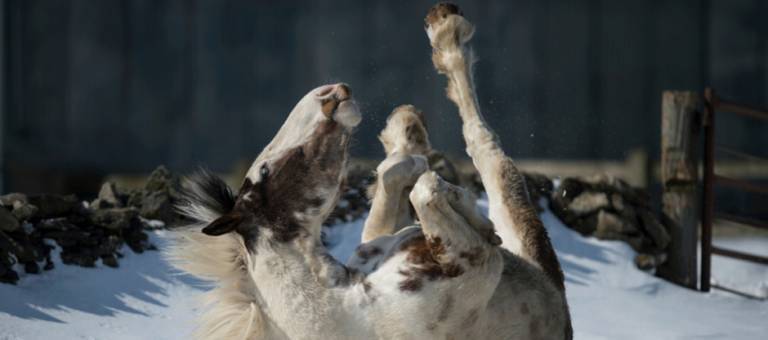
November 17, 1999
Gastric Ulcers in Horses: A Widespread but Manageable Disease
Problems related to the small intestine and large intestine are well understood and routinely treated. What may be surprising







